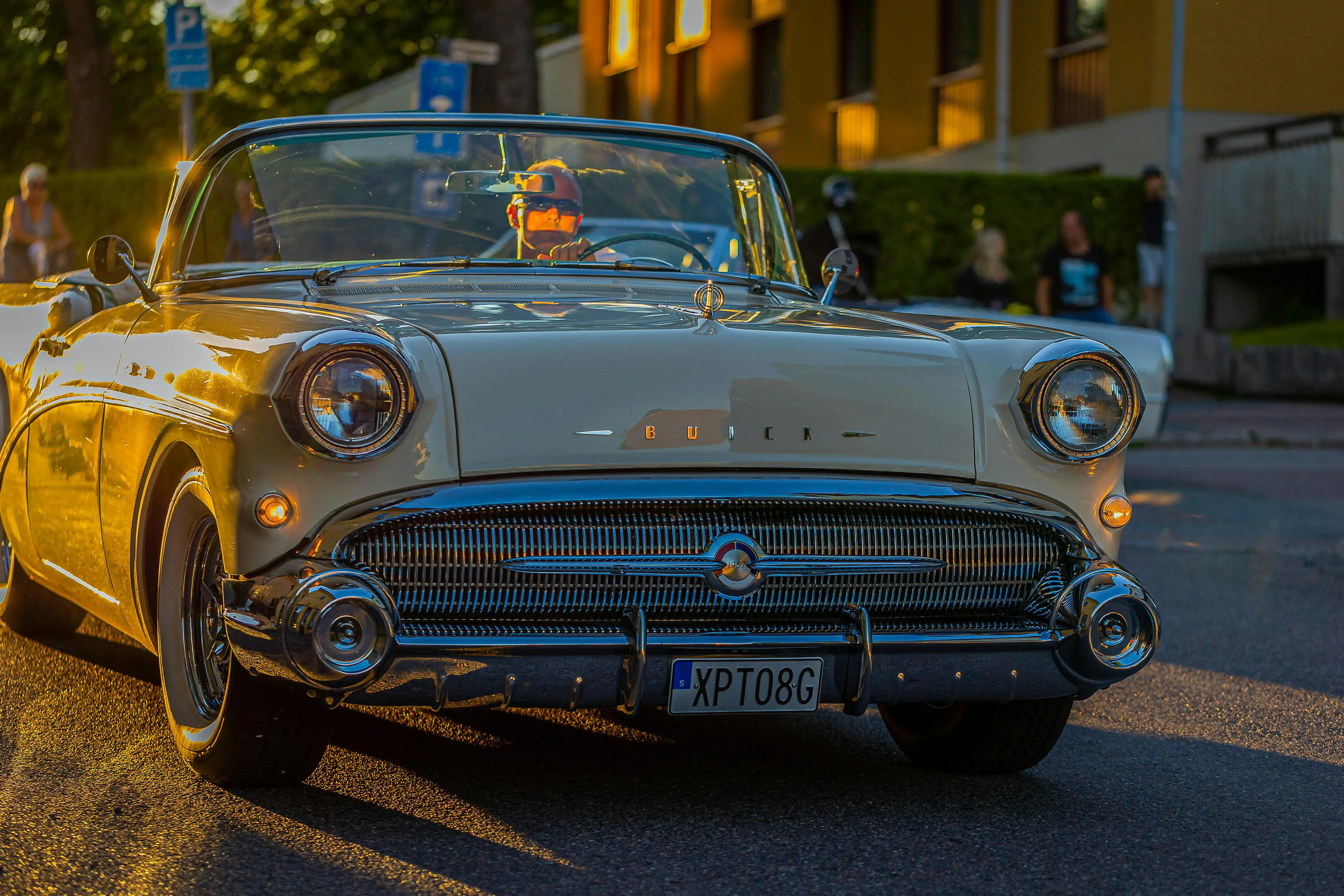Salvage And Non-Running Car Imports To Netherlands: Regulations & Risks
Importing salvage or non-running vehicles to the Netherlands presents unique challenges that require careful planning, specialized knowledge, and realistic expectations about costs and complications. Understanding Dutch and EU regulations, shipping requirements, and potential risks is essential for successful salvage vehicle imports. At West Coast Shipping, we specialize in handling complex salvage imports, providing expert guidance throughout the entire process.
For comprehensive information about Netherlands vehicle import procedures and regulations, visit our detailed guide on shipping cars to the Netherlands covering all aspects of the import process.
Understanding Salvage Vehicle Classifications
What Constitutes a Salvage Vehicle
Salvage vehicles are those deemed total losses by insurers due to damage exceeding a percentage of their market value, typically 75-80%.
Common Salvage Categories:
-
Accident-Damaged Vehicles: Cars with collision damage affecting structural integrity or major components
-
Flood-Damaged Vehicles: Water-damaged cars requiring extensive electrical and mechanical restoration
-
Theft Recovery Vehicles: Recovered stolen cars often missing parts or suffering vandalism damage
-
Fire-Damaged Vehicles: Cars with fire damage affecting body, interior, or mechanical systems
-
Hail-Damaged Vehicles: Vehicles with extensive body damage from severe weather
Salvage Title Documentation
Understanding salvage title types is crucial for Netherlands import compliance and registration eligibility.
Title Classifications:
-
Salvage Title: Vehicle declared total loss but potentially repairable
-
Rebuilt Title: Previously salvage vehicle that has been repaired and inspected
-
Parts Only Title: Vehicle designated for dismantling, not road use
-
Flood Title: Specific designation for water-damaged vehicles
-
Lemon Title: Vehicles with manufacturing defects or repeated warranty issues
Netherlands Salvage Import Regulations
RDW Requirements and Standards
The Dutch Vehicle Authority (RDW) maintains strict standards for all imported vehicles, with enhanced scrutiny for salvage imports.
Important Note on RDW Inspection Reality: Many US-specification salvage vehicles fail RDW inspection unless extensively rebuilt. The complexity and cost of bringing US salvage vehicles to Dutch/EU standards often exceed initial expectations, requiring significant modifications beyond basic repairs.
Salvage-Specific RDW Requirements:
-
Complete Damage Documentation: Detailed reports of all previous damage and repairs
-
Repair Certification: Professional documentation of all restoration work performed
-
Safety System Verification: Confirmation that airbags, ABS, and other safety systems function properly
-
Structural Integrity Assessment: Engineering verification of frame and structural repairs
-
Emissions Compliance: Proof that emissions systems meet EU standards after restoration
EU Type Approval for Rebuilt Vehicles
Salvage vehicles must demonstrate compliance with current EU safety and emissions standards regardless of manufacture date.
Key Compliance Areas:
-
Safety Standards: Seatbelts, airbags, lighting, and braking systems must meet current requirements
-
Emissions Compliance: Engine and exhaust systems must conform to applicable EU emissions standards
-
Technical Standards: Speedometer, mirrors, and other equipment must meet Dutch specifications
-
Documentation Standards: All modifications and repairs must be professionally documented
-
Professional Certification: Major structural or safety-related repairs require certified technician verification
Import Documentation Requirements
Comprehensive documentation is essential for salvage vehicle customs clearance and RDW approval.
Required Salvage Import Documents:
-
Original Title: Clear salvage, rebuilt, or flood title from country of origin
-
Damage Assessment Reports: Professional evaluation of all previous damage
-
Repair Documentation: Complete records of all restoration work performed
-
Parts Receipts: Documentation of all replacement parts used in restoration
-
Professional Certifications: Technician certifications for major repair work
-
Before/After Photos: Visual documentation of damage and restoration progress
-
Bill of Sale: Clear purchase documentation showing salvage status disclosure
Shipping Requirements for Salvage Vehicles
Container Shipping Mandatory
Non-operational and heavily damaged vehicles must use container shipping due to their condition and handling requirements.
Critical Fluid Drainage Requirements
Rotterdam port requires complete fluid drainage for salvage and non-operational vehicles. While enforcement may vary at US ports, European ports including Rotterdam maintain strict requirements for environmental and safety compliance.
Mandatory Drainage Requirements:
-
Complete Fuel Removal: All gasoline must be drained from tanks and fuel lines
-
Engine Oil Drainage: Complete removal of all engine lubricants
-
Coolant Removal: Full drainage of cooling system fluids
-
Brake Fluid Removal: Complete hydraulic system drainage
-
Transmission Fluid: Removal of all transmission and differential fluids
Salvage Container Shipping Considerations:
-
Specialized Loading Equipment: Forklifts, winches, or cranes required for non-operational vehicles
-
Enhanced Securing: Additional tie-downs and blocking necessary for damaged vehicles
-
Complete Fluid Drainage: All automotive fluids must be completely drained before shipping per Rotterdam requirements
-
Parts Inventory: Loose or removed parts must be securely packaged and documented
-
Container Selection: Dedicated containers often required for heavily damaged vehicles
Personal Items Strictly Prohibited
Dutch customs strongly discourage shipping personal items with salvage vehicles, especially loose parts not listed in official documentation. This restriction is more strictly enforced for salvage imports due to increased scrutiny.
Prohibited Items:
-
Personal belongings of any kind
-
Undocumented spare parts or components
-
Tools or equipment not part of the vehicle
-
Fluids or hazardous materials beyond those required for vehicle function
-
Any items not specifically declared in shipping documentation
Pre-Shipping Preparation
Proper preparation prevents complications during loading and customs clearance.
Essential Preparation Steps:
-
Complete Fluid Drainage: All fluids removed per Rotterdam port requirements
-
Secure Loose Parts: Hood, doors, or trim pieces must be properly secured or removed
-
Battery Disconnection: Electrical systems should be safely disconnected
-
Documentation Preparation: All paperwork organized and readily accessible
-
Photo Documentation: Current condition photos for customs and receiving purposes
Financial Risks and Cost Considerations
Hidden Damage Assessment
Undisclosed or underestimated damage represents the primary financial risk in salvage vehicle imports.
Common Hidden Damage Issues:
-
Frame Damage: Structural damage not apparent in initial inspections
-
Electrical Problems: Complex wiring issues in flood-damaged vehicles
-
Engine Damage: Internal engine problems not immediately obvious
-
Safety System Failures: Airbag, ABS, or other safety system malfunctions
-
Corrosion Issues: Progressive rust or corrosion in flood or salt-damaged vehicles
Total Cost Analysis
Realistic cost assessment prevents financial disappointment and ensures informed decision-making.
Complete Cost Components:
-
Purchase Price: Initial salvage vehicle acquisition cost
-
Shipping Costs: Ocean freight, container fees, and handling charges
-
Import Duties: Netherlands customs duties and VAT on declared value
-
Repair Expenses: Professional restoration to meet Dutch standards
-
Compliance Costs: RDW inspection, certification, and registration fees
-
Unforeseen Expenses: Additional repairs discovered during restoration
RDW Inspection Failure Risk
A significant percentage of US-specification salvage vehicles fail RDW inspection without extensive rebuilding to EU standards. This reality must be factored into import planning and budget considerations.
Common Inspection Failure Causes:
-
US vs EU Standards: Fundamental differences in safety and emissions requirements
-
Incomplete Repairs: Restoration work not meeting professional EU standards
-
Safety System Malfunctions: Non-functional airbags, ABS, or other safety equipment
-
Structural Issues: Frame damage or poor-quality structural repairs
-
Emissions Non-Compliance: Engine or exhaust systems failing EU emissions standards
-
Documentation Deficiencies: Inadequate repair documentation or certification
Regulatory Compliance Risks
Registration Denial Consequences
Vehicles denied registration become expensive liabilities with limited options for resolution.
Denial Consequences:
-
No Road Use: Vehicle cannot be legally driven on Dutch roads
-
Limited Resale Options: Extremely difficult to sell unregistered vehicles
-
Storage Costs: Ongoing expenses for vehicle storage and maintenance
-
Additional Repair Costs: Expensive modifications to achieve compliance
-
Potential Total Loss: Investment may become completely unrecoverable
Legal and Environmental Compliance
Environmental and safety regulations apply strictly to all imported vehicles regardless of condition.
Compliance Requirements:
-
Hazardous Material Disposal: Proper handling of fluids, batteries, and other hazardous components
-
Environmental Standards: Compliance with EU environmental protection regulations
-
Safety Regulations: Adherence to Dutch road safety and vehicle standards
-
Documentation Requirements: Complete and accurate customs and regulatory filings
-
Professional Standards: Use of certified technicians for safety-critical repairs
Best Practices for Salvage Vehicle Imports
Pre-Purchase Due Diligence
Thorough research and inspection prevent costly mistakes before committing to salvage vehicle purchase.
Essential Due Diligence Steps:
-
Professional Inspection: Expert evaluation by qualified automotive technician
-
Damage History Research: Investigation of complete damage and repair history
-
Parts Availability Assessment: Verification of replacement parts availability and costs
-
Market Value Analysis: Realistic assessment of finished vehicle value in Netherlands
-
Legal Compliance Review: Evaluation of regulatory compliance requirements and costs
Realistic Timeline Planning
Salvage vehicle imports require extended timelines due to complexity and regulatory requirements.
Typical Timeline Components:
-
Pre-Purchase Phase: 2-4 weeks for inspection, evaluation, and purchase completion
-
Shipping Phase: 3-6 weeks for container booking, loading, and ocean transport
-
Customs Clearance: 1-3 weeks for Netherlands import processing and release
-
Restoration Phase: 4-12 weeks for professional repairs and compliance work
-
Registration Phase: 2-4 weeks for RDW inspection and approval process
West Coast Shipping: Salvage Import Expertise
Specialized Salvage Services
West Coast Shipping provides comprehensive support for complex salvage vehicle imports to the Netherlands.
Our Salvage Import Services:
-
Condition Assessment: Expert evaluation of vehicle condition and shipping requirements
-
Documentation Management: Professional preparation of all import and customs paperwork
-
Specialized Loading: Equipment and expertise for non-operational vehicle handling
-
Customs Representation: Experienced advocacy through Netherlands import procedures
-
Compliance Guidance: Expert advice on RDW requirements and approval processes
Risk Mitigation Strategies
Professional expertise reduces common risks associated with salvage vehicle imports.
Our Risk Reduction Approach:
-
Thorough Documentation: Complete paperwork preparation prevents customs delays
-
Condition Reporting: Detailed condition documentation protects against shipping damage claims
-
Professional Relationships: Established Netherlands contacts expedite processing
-
Compliance Expertise: Current knowledge of RDW requirements and procedures
-
Problem Resolution: Experienced handling of complications and delays
Cargo Damage Protection for Salvage Vehicles
Salvage vehicles require additional protection due to their compromised condition and higher vulnerability.
West Coast Shipping offers exclusive Cargo Damage Protection covering your vehicle from warehouse pickup through Netherlands delivery. Standard maritime liability is limited to $500, making additional protection essential for salvage investments.
Learn more about comprehensive vehicle protection at Cargo Damage Protection.
Reality Check: Success Probability Assessment
Honest Evaluation Framework
Professional assessment helps determine realistic success probability before committing to salvage import projects.
Success Factors:
-
Damage Extent: Severity and type of damage affecting repair complexity
-
Parts Availability: Availability and cost of required replacement components
-
Compliance Requirements: Extent of modifications needed for EU standards
-
Professional Resources: Access to qualified repair facilities and technicians
-
Financial Resources: Adequate budget for complete restoration and compliance
For comprehensive information about Netherlands vehicle import procedures and regulations, visit our detailed guide on shipping cars to the Netherlands covering all aspects of the import process.
Ready to Import Your Salvage Vehicle to the Netherlands?
Salvage vehicle imports require specialized expertise and realistic expectations about costs, timelines, and potential complications. West Coast Shipping provides comprehensive support for complex salvage imports, from initial assessment through final RDW registration.
Our experience with thousands of vehicle imports, including challenging salvage cases, ensures you receive accurate guidance and professional handling throughout the entire process. From specialized container loading through Netherlands customs clearance and RDW compliance, we manage every detail with expertise that comes from industry leadership.
Contact us today for personalized consultation about importing your salvage vehicle to the Netherlands. Our experts will evaluate your specific project and provide realistic assessment of costs, timelines, and success probability.
Visit our comprehensive Netherlands import services page to explore our complete range of services and learn about all aspects of Netherlands vehicle imports.
Calculate Your Salvage Import Cost Today
You May Also Like
These Related Stories

Classic Car Import Duty Exemptions In Netherlands: Complete 2025 Guide

Classic Car Imports To Egypt: New Rules & Exemptions 2025

-093789-edited.png?width=220&height=79&name=wcs_final_logo_(1)-093789-edited.png)
